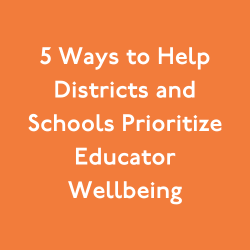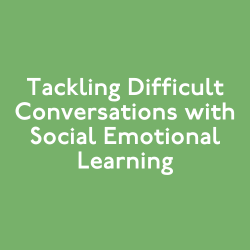It’s no secret that teaching is stressful. Long hours, unpredictable days, varying responsibilities, taking work home, and the immense responsibility of impacting children’s lives are all overwhelming. Despite an increase in the hiring of new teachers, teacher attrition is still high and enrollment in teacher preparation program has decreased by 35%. On average, 8% of teachers leave the classroom each year.
While a wide variety of problems contribute to this issue, many of these are outside of a teacher’s control. One thing that is in their control: self care. It seems obvious that teachers need to prioritize their personal wellbeing, yet many do not. So, why do teachers find it so hard to take care of themselves?
Being busy is good
At some point in the past few years, “busy” started translating into “success.” Many people feel that when you’re not busy, something is wrong. While some people thrive off of a busy schedule, the majority of us need downtime to reset and recharge. If you find that you don’t have this time – add it to your calendar. Taking time for self-care can improve your mental, emotional and physical health. Here are some easy ideas for how you can practice self care.
Saying no is hard
We care about our students, our student’s parents, our colleagues and our entire school community. Not to mention, our own family and friends. When we care about something, it’s hard to say no. Angela Watson tells us, “If we say yes to one thing, we are simultaneously saying no to something else.” Next time you feel guilty about saying no, keep this in mind.
Putting it off until later
Self care is is one of the easiest things to put off until later. We often look at our stress as circumstantial: “Today was hard because I got stuck in traffic, tomorrow will be better”, or “I already promised to organize the talent show, once that’s done, I’ll have more time.” The truth is, there is always going to be a reason to not get started until you make the choice to prioritize you. So go ahead and start – we have 3 steps to help you.
Sweating the small stuff
Is redoing an entire worksheet so it’s in “just the right font” really necessary? Going the extra mile for our students is great – but sweating small details likely won’t have an effect on their learning. In addition it can cause extra stress and take up precious time. So, when you find your schedule is jam packed and your stress level is starting to rise, go through your to do list and nix the “small stuff” or the items that aren’t absolutely needed.
Comparing ourselves to others
It’s easy to start comparing yourself to the teacher next door, and social media opens the door to compare yourself to teachers across the country. Rather than comparing, focus on collaboration! Share resources, co-plan lessons, and ask for help or feedback as needed. The only person we should be comparing ourselves to is who we were yesterday. Foster the same growth mindset you encourage in your students – think about how you’ve grown rather than comparing to others.
Striving for perfection
Of course we want everything to be perfect for our students, we care about them immensely. Remember – practice what you preach. Nobody is perfect, and people make mistakes. Mistakes, missteps, and failures are how we learn and grow. Practice the same growth mindset that you encourage your students to practice.
Sign up for Move This World’s newsletter to stay up to date on social emotional learning.
Enter your email below!










